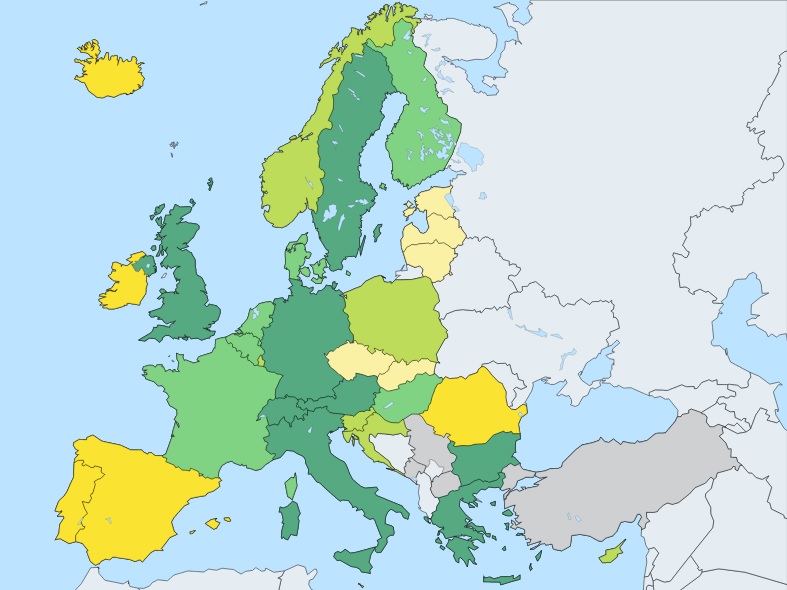What happens to lone migrant children applying for asylum in Europe – VIDEO
The number of lone migrant children applying for asylum in Europe dropped by a third in 2016, according to the European Union’s statistics office, but child rights advocates said many unaccompanied children are not reflected in official figures and remain at risk of abuse.
Eurostat this week said 63,290 lone children applied for asylum in the EU in 2016, falling from 96,465 in 2015 at the height of Europe’s worst migration crisis since World War Two.
Eurostat’s figures refer specifically to asylum applicants “considered to be unaccompanied minors”, meaning EU states accepted the youngsters’ declared age or established it themselves through age assessment procedures.

But the U.N.’s children agency, UNICEF, said many lone migrant children move undetected through Europe without applying for asylum and are not included in official data, making them vulnerable to exploitation and abuse from smugglers.
“Many of these children, including the ever-increasing numbers of unaccompanied children, are not even reflected in these numbers,” Sarah Crowe, a UNICEF spokeswoman, told the Thomson Reuters Foundation.
“National asylum systems have experienced backlogs, children continue to move throughout Europe on their own and some don’t apply for asylum at all.”
Children rely on human smugglers, often under a “pay as you go system”, making them prone to exploitation including rape, forced labour, beatings and death, says UNICEF.
“Children face tremendous hurdles at every step of the way and even they once they arrive in Europe it is just the beginning of another journey – many continue to be at risk of trafficking, violence and exploitation and often do not have even their basic rights met,” said Crowe.
Some 1.2 million people sought asylum in the EU in 2016, slightly fewer than in the previous year, Eurostat previously reported.
The EU has been seeking to crack down on arrivals of refugees and migrants after taking in some 1.6 million people from 2014 to 2016.
80% of EU immigrants are living in only 5 states. Where do they come from
Among other measures, it struck a deal with Turkey to stop illegal migrants from crossing into EU member Greece.
Over 700,000 asylum seekers were granted protection in EU
Over 700,000 asylum seekers were granted protection in EU member states during 2016 and more than half of them were Syrians fleeing the civil conflict in their native country. In addition, the EU states have also received over 14,000 resettled refugees, according to the official data released by Eurostat.
When it comes to which European country has received the most asylum seekers, Germany stands out, accepting more than half of the total asylum seekers that were granted protection in the EU during 2016. 445,210 asylum seekers were granted protection by the German state. The number is three times higher than that recorded in 2016.
Sweden received 69,350 asylum seekers and 35,450 were accepted by the Italian authorities.
Germany, a promise land for asylum seekers
The number of first time asylum seekers who applied for international protection in the European Union last year is almost double that of 2014. Over 1,2 million people came to Europe in 2016, and Germany recorded more than half of all first time applicants in the EU. A million more are waiting to be accepted.
Official numbers regarding asylum seekers in the European Union are available via Eurostat, and they show 1,204,300 first time asylum seekers applied for international protection in the Member States of the EU. The number is slightly down compared with 2015, when 1,257,000 first time applicants were registered, but almost double that of 2014, when 562,700 first time asylum seekers were registered in EU countries.
Common European migration policy voted by MEPs in what is called a “crisis of solidarity”
With 722,300 first time applicants registered in 2016, Germany recorded 60% of all first time applicants in the EU Member States. According to Article 16a of Germany’s Basic Law, the country grants victims of political persecution an individual right of asylum. The fundamental right of asylum thus has high priority and “expresses Germany’s willingness to fulfill its historical and humanitarian obligation to admit refugees.”